Our Scientific Advisory Board
Our Scientific Advisory Board advises Solving Kids' Cancer UK on clinical and scientific matters, helping us to work closely with the wider neuroblastoma research and clinical community. The Scientific Advisory Board also oversees the development of our formal, structured, and accredited research funding award process.
Their expert advice ensures we are focusing on unmet needs and investing in the most cutting-edge research to increase the UK's clinical trial footprint, allowing more children to access innovative therapies closer to home. This is an urgent and vital need, as neuroblastoma remains one of the leading causes of death from cancer in children.
With the help and guidance of our Scientific Advisory Board we have developed a clearly defined Research Strategy and a formal, structured, and Association of Medical Research Charities (AMRC) accredited research funding award process. The Scientific Advisory Board members are not remunerated for their role, and we are extremely grateful to them for all the time they have dedicated to supporting us in achieving our joint goals of improving outcomes for children with neuroblastoma.
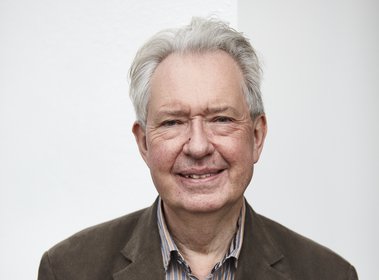
Professor Andy Pearson
Chair
Professor Andy Pearson is formerly a Cancer Research UK Professor of Paediatric Oncology, at the Institute of Cancer Research and the Royal Marsden Hospital NHS Trust. During a long and distinguished career, he helped establish and lead many key groups in the paediatric oncology landscape both nationally and internationally. Professor Pearson authored the first international guidelines for the conduct of Phase I trials in children with cancer and led the first paediatric Phase I study in the UK. He was the founding Chair of the International Society for Paediatric Oncology Europe Neuroblastoma Committee (SIOPEN) and the Chief Investigator of the BEACON Trial - the first-ever randomised European study for children with refractory/relapsed neuroblastoma. He has held many international positions of influence including Executive membership of the Innovative Therapy for Children with Cancer Consortium (ITCC), Board membership of SIOPEN, Co-Chair of the International Neuroblastoma Risk Group Strategy (INRG), and membership of the Steering Committee of the multi-stakeholder CDDF – ITCC – SIOPE Paediatric Oncology Platform (ACCELERATE). He has published over 350 scientific manuscripts. He retired from clinical practice in May 2014 due to ill health. Professor Pearson is an eminent figure in the fields of drug development and neuroblastoma research and was awarded a Life Time Achievement Award from Advances in Neuroblastoma Research in 2016. Professor Pearson has been instrumental in establishing our Scientific Advisory Board and is an advocate at every level for children affected by neuroblastoma.
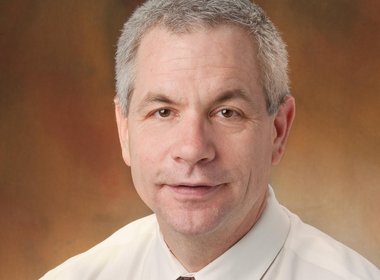
Dr John Maris
Vice-Chair
Dr John Maris is Giulio D’Angio Professor of Pediatrics in the Perelman School of Medicine at the University of Pennsylvania (Penn) and the Children’s Hospital of Philadelphia (CHOP). He has focused on neuroblastoma for over three decades with the dual goals of improving patient outcomes, and using the disease as a model to understand cancer in general. Dr Maris’ research has focused on hereditary neuroblastoma, and his laboratory discovered the vast majority of the known neuroblastoma susceptibility genes through both family-based and genome-wide association study approaches. Dr Maris’ laboratory has also defined the genomic landscape of neuroblastomas at diagnosis and during clonal evolution. These studies have led to the discovery and validation of biomarkers of patient outcomes, as well as novel therapeutic strategies. In parallel, Dr Maris has focused on improving neuroblastoma patient outcomes by working with his team to develop the preclinical rationale and then designing innovative clinical trials for a variety of small molecular, targeted radiotherapeutic, and more recently immunotherapeutic strategies. Their discovery that ALK is the most commonly mutated gene was rapidly translated into ongoing clinical trials through their preclinical programmes. Dr Maris is recognised as a leading expert in the field of paediatric oncology and serves on several Scientific Advisory Boards and Committees, including for the National Cancer Institute, the American Association for Cancer Research, Genome Canada, the Cancer Moonshot Blue Ribbon panel, and many private foundations.
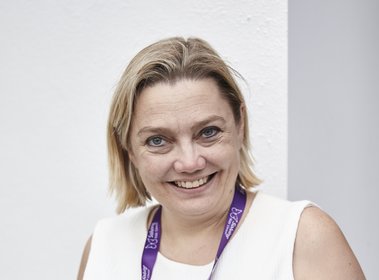
Dr Juliet Gray
Dr Gray is an Associate Professor in Paediatric Oncology at the Cancer Immunology Centre, University of Southampton. She leads a translational research group focused on novel antibody immunotherapies for neuroblastoma, including preclinical evaluation of novel combinational therapies as well as early-phase clinical trials.
Dr Gray’s specific research interests are in targeting anti-GD2 monoclonal antibodies, and immunomodulatory antibodies such as those targeting PD-1. She has developed the laboratory support and immune endpoint assays within the Southampton Experimental Cancer Medicine Centre, required to support early phase immunotherapy studies.
She was the UK Chief Investigator and member of the Trial Steering Committee for the SIOPEN Long Term Infusion of ch14.18 (anti-GD2) monoclonal antibody in children with relapsed/refractory neuroblastoma and is the Chief Investigator of the first-ever transatlantic neuroblastoma study to open in the UK – a multi-centre Phase I trial combining targeted radiation therapy and two immune therapies (131-I MIBG, Nivolumab and ch14.18/CHO) for the treatment of children with relapsed or refractory neuroblastoma.
Dr Gray plays a key role in both UK and European neuroblastoma research. She is a member of the UK National Cancer Research Institute Children’s Cancer and Leukaemia Clinical Studies Group (NCRI CCL CSG) and neuroblastoma subgroup, Executive Member of the European Neuroblastoma Research Network (SIOPEN), and member of the SIOPEN Immunotherapy Committee.

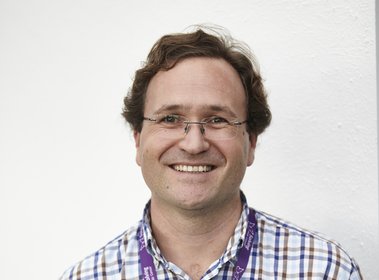
Dr Lucas Moreno
Dr Lucas Moreno is a paediatric oncologist dedicated to early phase clinical trials and neuroblastoma. He trained in La Fe Hospital (Valencia, Spain), and started his career in the Royal Marsden Hospital (London, UK) back in 2008, under the mentorship of Professor Andy Pearson.
In April 2013, he created the Clinical Research Unit for Paediatric Phase I/II Trials at Hospital Niño Jesús in Madrid, Spain, a centre that is part of the Innovative Therapies for Children with Cancer (ITCC) European consortium, and focuses on the design and development of first-in-child phase I trials and early clinical trials of molecularly targeted agents and immunotherapeutics. Dr Moreno was recently appointed Clinical Director of Paediatric Oncology and Haematology at Vall d'Hebron Barcelona Hospital Campus.
Dr Moreno is the international Chief Investigator of the randomised phase 2 trial BEACON-Neuroblastoma open in 10 European countries for refractory/relapsed neuroblastoma, and has participated in the development of more than 30 early phase clinical trials for paediatric cancers. He has led the development of pharmacodynamic biomarkers for PI3K inhibitors in neuroblastoma which are now ready to be implemented in early clinical trials. He is also invited investigator at the Spanish National Cancer Research Centre (CNIO) and is running several projects in neuroblastoma drug development.
Dr Moreno chairs the Drug Development Group and is a member of the Executive Committee of the European Neuroblastoma Network (SIOPEN), and is a member of the Clinical Trials Committee of the ITCC consortium.

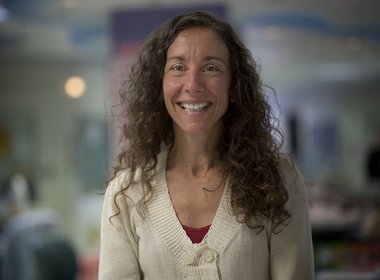
Dr Julie Park
Julie R. Park, MD is attending physician at Seattle Children’s Hospital, professor in paediatrics at the University of Washington School of Medicine and associate in the Clinical Research Division at Fred Hutchinson Cancer Research Center (FHCRC). She is director of the paediatric haematology-oncology fellowship at the University of Washington. Dr Park is an active member of the Children’s Oncology Group Consortium and as Chair of the COG Neuroblastoma Scientific Committee provides leadership for the development of neuroblastoma clinical research within COG. Dr Park’s primary research focus has been investigating novel therapies for the treatment of high-risk neuroblastoma. She has conducted a multi-centre clinical trial to determine the feasibility and toxicity of a novel induction chemotherapy regimen for high-risk neuroblastoma and has collaborated with local and national investigators to optimise the use of radiation therapy as part of treatment for neuroblastoma. Dr Park’s work has led to her development of the current national randomised phase III trial within COG for treatment of newly diagnosed high-risk neuroblastoma. She also leads the Advanced Therapeutics Program at Seattle Children’s Hospital and has steered Seattle Children’s into becoming a leading participant in the Phase I Consortium of COG and the New Approaches to Neuroblastoma Therapy Consortium. She has been actively involved in the development of novel chemotherapeutic agents that may block critical tumour cell pathways necessary for tumour cell growth and survival.

Dr Steven DuBois
Dr DuBois completed medical school and pediatric training at the University of California, San Francisco (UCSF). He completed pediatric oncology training at Dana-Farber / Boston Children’s Hospital and obtained a Master of Science in Epidemiology from the Harvard School of Public Health. He is currently an Associate Professor of Pediatrics at Harvard Medical School. He is the Director of Experimental Therapeutics at Dana-Farber / Boston Children’s Cancer and Blood Disorders Center where he leads a program designed to bring new targeted therapies to children with cancer.
Dr DuBois leads an active clinical and translational research program focused on patients with advanced neuroblastoma and Ewing sarcoma. He conducts clinical trials of novel targeted agents relevant to these diseases, including national phase 1, 2, and 3 clinical trials. He also studies new biomarkers that improve our understanding of the biology of pediatric solid tumors and of the pharmacodynamic effects of targeted therapies.
Dr DuBois has served on a number of national committees, including the Children’s Oncology Group (COG) Neuroblastoma Steering Committee, COG Bone Tumor Committee, the American Society of Clinical Oncology (ASCO) Scientific Program Committee, and the US FDA Pediatric Oncology Drugs Advisory Committee (ODAC).

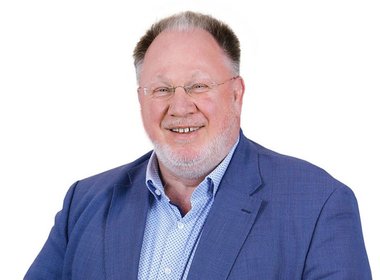
Professor Michel Zwaan
Prof Christian Michel Zwaan is Head of Paediatric Oncology/Haematology at Erasmus MC – Sophia Children’s Hospital in Rotterdam, Netherlands, and Senior Principal Investigator for Developmental Therapeutics and Head of the Data and Trial Center at the Princess Máxima Center for Pediatric Oncology. Prof Zwaan’s clinical research program comprises mainly of developmental therapeutics. For this, the DCOG Early Clinical Trial Consortium was set up to implement early phase clinical trials to test the safety and efficacy of novel drugs, and it actively contributes to the ITCC (Innovative Therapies for Children with Cancer) network to design, implement and perform early phase studies in Europe. Prof Zwaan has vast teaching experience and serves as an editor and reviewer for many renowned publications and journals. He also provides consultancy services for various pharmaceutical companies, mainly regarding the development of Pediatric Investigational Plans (PIP)/Advisory Board for specific products. He serves as a European expert for the Paediatric Committee (PDCO) of the European Medicines Agency (EMEA). He is represented on many paediatric oncology national and international committees including the Supervisory Board of the Dutch Childhood Oncology Group, the Executive Board and Clinical Trial Committee of the ITCC consortium, and the SIOP-Europe Clinical Research Council steering committee.
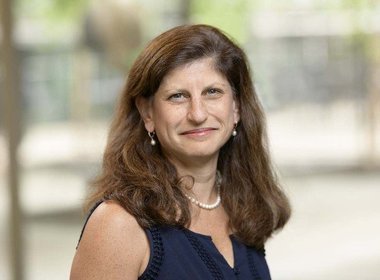
Dr Julia Glade Bender
Julia Glade Bender is a paediatric oncologist and Vice Chair for Pediatric Clinical Research at Memorial Sloan Kettering Cancer Center in New York. She specialises in treating children with solid tumours of the bone and soft tissue, including osteosarcoma, Ewing sarcoma, rhabdomyosarcoma, and germ cell tumours. She is a leader in developing clinical trials and other treatments for children with cancer that does not respond to standard treatment. Her research focuses on personalised medicines that are tailored to specific genetic features of tumours. In relation to this she is a part of the Paediatric MATCH Trial, which is a national effort in the US to get targeted drugs to as many patients as possible. This study is co-sponsored by the National Cancer Institute and the Children’s Oncology Group.
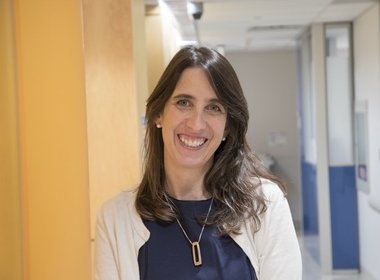
Dr Meredith Irwin
Dr Meredith Irwin (MD) is the Chief of Paediatrics at The Hospital for Sick Children and Professor and Chair of the Department of Paediatrics at the Temerty Faculty of Medicine at the University of Toronto. She is the first woman to hold these two roles, which she assumed in April 2020. Dr Irwin received her MD from Harvard Medical School and completed her Paediatrics and Oncology training at Boston Children’s Hospital and Dana-Farber Cancer Institute. She joined the Division of Haematology/Oncology at The Hospital for Sick Children as a Staff Physician and Clinician-Scientist in 2002. From 2008-2020 she was the Associate Chair of Paediatrics (Research) and held the position of Solid Tumour Section Head from 2011-2020. Dr Irwin’s research focuses on the genes and pathways that regulate cell death and metastasis in neuroblastoma, and the identification of biomarkers to optimise risk classification and precision medicine approaches for neuroblastoma. Dr Irwin is a member of the Children’s Oncology Group (COG) Neuroblastoma Executive Committee, Chair of the Biology Subcommittee, and is involved in the development of current and future North American clinical trials for patients with neuroblastoma. As Chief of Paediatrics she is committed to integrating precision child health approaches to research and clinical care and training the next generation of academic paediatricians.
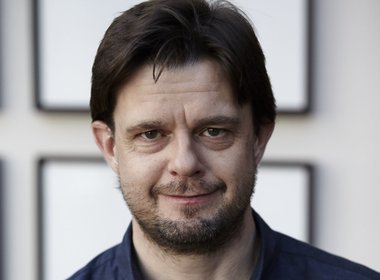
Nick Bird
Nick Bird first became involved in the charity in 2009 when his youngest son, Adam, was diagnosed with high-risk neuroblastoma.
After Adam showed little response to standard frontline therapy, Nick and his family travelled with him to both Germany and America for treatment. While seeking options for Adam, Nick became more involved in research, attending symposiums and meetings.
Following Adam’s death in 2013, Nick continued to engage in activities relating to research and advocacy on behalf of other children with neuroblastoma. In 2016 he became a member of the National Cancer Research Institute Children’s Cancer & Leukaemia Clinical Studies Group (NCRI CCL CSG), as well as a member of the specialist sub-group for neuroblastoma.
Nick joined Solving Kids' Cancer UK's Board of Trustees in April 2016 and became Chair in November 2018. He is committed to trying to improve the outlook for children in the UK diagnosed with neuroblastoma.
Outside of his voluntary life, he works for a technology company in the financial services sector and lives in Epsom with his wife and their two other children. In his spare time, he enjoys swimming, cycling, and running, and has completed a number of marathons … with several more to come (he says!).
"Neuroblastoma claims the lives of infants and young children, just starting out in life. Whilst there are brilliant doctors and researchers trying to find new ways to beat this disease, at present the most effective weapons continue to be the old artillery of chemotherapy, radiotherapy and surgery. And despite the most intensive treatment regime for any cancer, over half the children diagnosed with high-risk neuroblastoma still go on to die, whilst the majority of those who survive are left with serious, life-long, side-effects.
Researchers need our help; to engage with them, challenge them, steer them, support them, push them, and provide the funding commitments that make research happen, that in turn makes change happen. We must speak up for the children affected by this terrible disease, for they are simply too young to have a voice of their own."

Conflicts of interest
Solving Kids’ Cancer UK has developed a fair, robust, and transparent grant award process in line with the principles laid out by the Association of Medical Research Charities (AMRC).
We have taken significant steps to avoid the possibility of conflicts of interest arising in our grant review and award process where possible, and where these are unavoidable because of the nature of our work we have committed to managing them in a fair and transparent manner.
This has been particularly important for us as a funder of neuroblastoma research, as due to the limited size of the neuroblastoma research community there is a significant possibility that conflicts of interest (real or perceived) may arise. In order to protect Solving Kids’ Cancer UK, those who work for the charity, and its Scientific Advisory Board from any perception, real or otherwise, that the external interests and affiliations of its staff, Trustees and Scientific Advisory Board members might interfere with their impartiality and ability to work towards the furtherance of the charity’s objectives, we have created a comprehensive Conflict of Interest Policy.
Scientific Advisory Board members are not prevented from applying for grant awards from Solving Kids’ Cancer UK, but where they are an applicant or co-applicant on a grant application, they must declare an interest and withdraw from any consideration of that application. That member will not receive documents pertaining to the application, learn the identity of its reviewers or receive the scorecards from those reviewers. They must retire from the meeting when the application is assessed, and details of the discussion of that application will be deleted from any papers the member receives.
